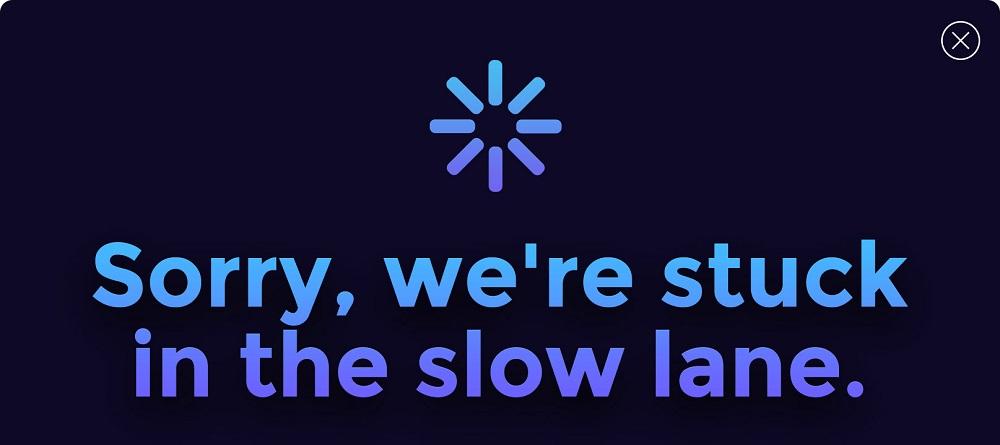Many fear that the U.S. government, specifically the Federal Communications Commission, will lose its grip on internet service providers as the Obama-era net neutrality policies die on Monday, June 11.
Net neutrality advocates see the June 11 event as a huge impediment to consumers’ right to fair internet access following the FCC’s December 2017 vote to implement the so-called “Restoring Internet Freedom Order.”
Despite the new internet order's name, critics deem it as the opposite of protecting online freedom.
"June 11 is significant because it will be the first time in the over 15 year battle over net neutrality that the FCC will have essentially no role in preserving an open internet and overseeing the broadband market," net neutrality advocate and former FCC senior staff Gigi Sohn told CNNMoney.
In 2015, then FCC commissioners, led by former chairman Tom Wheeler, passed the “Open Internet Order of 2015.” It led to the reclassification of internet service providers to the same category as telephone companies based on Title II of the Telecommunications Act of 1934.
Ultimately, the 2015-installed policies disallowed ISPs from prioritizing or throttling the speed at which internet content is delivered based on payments made companies (similar to Netflix or Amazon Prime Video), which put some in the so-called “internet fast lane.” This meant that ISPs should deliver digital content at the same pace.
With that in mind, emerging internet content providers are seen as some of the affected entities with the repeal of the Open Internet Order of 2015. "Those 'fast lanes' will put those who won't or cannot pay in the slow lane, making the internet look a lot like cable TV," Sohn added.
Following FCC’s vote, protests took place across several cities in the United States condemning the decision of the current FCC leadership. The U.S. Senate had passed resolution S.J.Res.52 with a 52-47 vote in the hope of reversing FCC’s decision. But the filing did not make it to the House of Representatives floor, which meant that nothing can stop the repeal of the 2015 net neutrality rules for now.
Earlier this month, the FCC announced the Office of Management and Budget’s approval of its December 2017 vote which led to the June 11 ultimatum. In the same news release, FCC Chairman Ajit Pai calls the action as an end to “unnecessary and harmful Internet regulations.”



 AMD Shares Slide Despite Earnings Beat as Cautious Revenue Outlook Weighs on Stock
AMD Shares Slide Despite Earnings Beat as Cautious Revenue Outlook Weighs on Stock  SoftBank Shares Slide After Arm Earnings Miss Fuels Tech Stock Sell-Off
SoftBank Shares Slide After Arm Earnings Miss Fuels Tech Stock Sell-Off  OpenAI Expands Enterprise AI Strategy With Major Hiring Push Ahead of New Business Offering
OpenAI Expands Enterprise AI Strategy With Major Hiring Push Ahead of New Business Offering  Google Cloud and Liberty Global Forge Strategic AI Partnership to Transform European Telecom Services
Google Cloud and Liberty Global Forge Strategic AI Partnership to Transform European Telecom Services  SpaceX Updates Starlink Privacy Policy to Allow AI Training as xAI Merger Talks and IPO Loom
SpaceX Updates Starlink Privacy Policy to Allow AI Training as xAI Merger Talks and IPO Loom  Nvidia Nears $20 Billion OpenAI Investment as AI Funding Race Intensifies
Nvidia Nears $20 Billion OpenAI Investment as AI Funding Race Intensifies  Instagram Outage Disrupts Thousands of U.S. Users
Instagram Outage Disrupts Thousands of U.S. Users  Anthropic Eyes $350 Billion Valuation as AI Funding and Share Sale Accelerate
Anthropic Eyes $350 Billion Valuation as AI Funding and Share Sale Accelerate  TSMC Eyes 3nm Chip Production in Japan with $17 Billion Kumamoto Investment
TSMC Eyes 3nm Chip Production in Japan with $17 Billion Kumamoto Investment  Nvidia, ByteDance, and the U.S.-China AI Chip Standoff Over H200 Exports
Nvidia, ByteDance, and the U.S.-China AI Chip Standoff Over H200 Exports  Baidu Approves $5 Billion Share Buyback and Plans First-Ever Dividend in 2026
Baidu Approves $5 Billion Share Buyback and Plans First-Ever Dividend in 2026  SpaceX Seeks FCC Approval for Massive Solar-Powered Satellite Network to Support AI Data Centers
SpaceX Seeks FCC Approval for Massive Solar-Powered Satellite Network to Support AI Data Centers  Jensen Huang Urges Taiwan Suppliers to Boost AI Chip Production Amid Surging Demand
Jensen Huang Urges Taiwan Suppliers to Boost AI Chip Production Amid Surging Demand  Oracle Plans $45–$50 Billion Funding Push in 2026 to Expand Cloud and AI Infrastructure
Oracle Plans $45–$50 Billion Funding Push in 2026 to Expand Cloud and AI Infrastructure  SpaceX Prioritizes Moon Mission Before Mars as Starship Development Accelerates
SpaceX Prioritizes Moon Mission Before Mars as Starship Development Accelerates 































